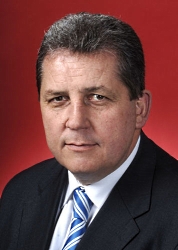|
|
|
|
|
|
|
News & Views item - July 2011 |
![]() 100,000 Additional Places and Counting But When Does it Reach Instability?
(July 4, 2011)
100,000 Additional Places and Counting But When Does it Reach Instability?
(July 4, 2011)
 Minister
for Tertiary Education, Skills, Jobs and Workplace Relations, Senator Chris
Evans fronted Channel TEN's "Meet the Press" yesterday and as an upshot his
ministry released a statement in self praise that "100,000 additional university
places [have been] delivered by Gillard Governmentís reforms."
Minister
for Tertiary Education, Skills, Jobs and Workplace Relations, Senator Chris
Evans fronted Channel TEN's "Meet the Press" yesterday and as an upshot his
ministry released a statement in self praise that "100,000 additional university
places [have been] delivered by Gillard Governmentís reforms."
Senator Evans is quoted: "As a direct result of the reforms the Gillard Government introduced, we have seen close to 100,000 additional students grasp the opportunity of a university education since 2007. Many of these students will be the very first members of their family to have the opportunity to attend university. The Gillard Government reforms have seen us move away from a decades-old system of central planning to a new demand driven approach."
Senator Evans added: "The opportunity to access a university education will change the lives of each and every one of these students. This is also great news for our economy. It means that more Australians will have the chance to gain the qualifications they need to access the high skilled jobs of the future. Skills Australia has forecast that by 2025 a third of all jobs will require a minimum of a bachelorís degree qualification. To meet that demand for highly skilled workers, Labor is ensuring everyone who is eligible can access a place at Australian universities. The Gillard Government reforms of higher education underpin our drive to build a highly educated, skilled and productive workforce to underpin our nationís future prosperity. These figures confirm that the Gillard Government is ensuring Australians have access to a world-class education system so they have the skills to get the high paying jobs of tomorrow."
Senator Evans' department released the figures that since 2007 an extra 80,000 undergraduate students each year get the opportunity of a university education Ė from 408,000 in 2007 to 488,000 this year. In addition the number of Commonwealth-supported postgraduate places double from 16,500 in 2007 to 33,000 this year.
What is not stated is in which disciplines the additional students are enrolled, what additional resources have been provided to the universities to deal with the additional demand and to what degree have universities' course and research structures become distorted from the viewpoint of the nation's commonweal.
And if the senator's advisors are correct growth in enrolments is forecast to increase by a further 32,000 students in the next two years.
Add to the picture Trinity College Dublin's provost-elect Patrick Prendergast's observation that the siren song of increasing international student numbers while alluring, is disquieting.
For example, the Australian situation is being seen in many quarters as: "a cautionary tale [and] while Trinity College could be on a trajectory to increasing international students -- from an education and financial perspective -- many of the alarm bells point to Australia. At what point does it become unsustainable if it is being used to pay for the education of Australian students and make universities very vulnerable to student demand?"
Is it any wonder that the plethora of partial truths that spews from ministers and their departments (and its common to all governments) leads to chronic scepticism of their continued self-praise.